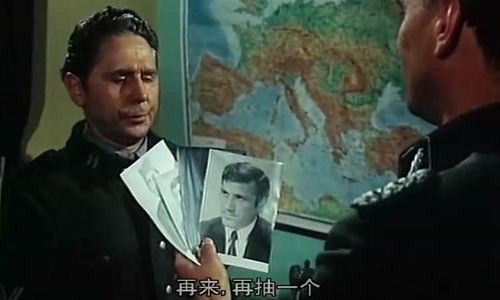HOME >> ARTS
Serbian Embassy's 'spelling mistake' and films go viral in China
By Bi Mengying Source:Globaltimes.cn Published: 2020/3/24 5:15:14

Promotional material for "Walter Defends Sarajevo" Photo: Maoyan

Promotional material for "The Bridge" Photo: Maoyan
Amid the coronavirus (COVID-19) pandemic, Serbia has been trending on Chinese social media recently. On Weibo, a hashtag was inspired from a post, where Serbian President Aleksandar Vucic greeted a team of Chinese doctors who had arrived to help fight against COVID-19 and kissed the Chinese national flag to show his gratitude.
'Tiegan' friends
The hashtag #RevisionHistoryOfSerbianEmbassy received over 180 million hits, and 26,000 reposts by Monday.
The hashtag was created after the Serbian Embassy posted on its official Weibo account, "Here come 'tieban' friends! Serbian President Aleksandar Vucic welcomed Chinese doctors and kissed the Chinese national flag."
In Chinese, "tieban" means "iron board" and many said the embassy was probably trying to say the doctors were made of "iron." However, the word is usually used to describe Japanese teppanyaki in China.
After netizens pointed out the mistake, several revisions followed, where "tieban" was first changed into "tiegang", most likely an attempt of "gangtie", or steel, but backward. However, the second attempt was also incorrect as the wrong character had been used for "gang," thus making the error a spelling mistake.
The "gang" was replaced with the correct character, but it was backwards. Finally, the last post from the embassy landed on tiegan (meaning loyal and firm) friends.
Chinese netizen comments included, "No matter if it's 'tieban,' 'tiegang' or tiegan friends, we are friends for sure," and "let's fight this pandemic and stay strong together! When it ends, I really look forward to visiting Serbia."
Former Yugoslavian and Serbian films
While the "tiegan" friendship between the countries has strengthened amid the COVID-19 pandemic, their relationship and cultural exchanges share an extended history, and especially with films. Discussions on Serbian films have risen among Chinese on social media.
The cult favorite Walter Defends Sarajevo was popular in China because of its anti-fascist values and unity.
The Xinhua News Agency reported that since 1973, roughly 2 billion people in China had seen the film, which has an 8.7/10 on Chinese media review website Douban.
"Many people of my age have seen it. My school organized a screening so we could watch it. Of course, it was dubbed in Chinese. I still remember the scenes from the film. We were so hooked, and none of us wanted to go for a bathroom break," Dehe, a 61-year-old Chinese viewer, told the Global Times.
The film was shown recently on China Central Television's (CCTV) movie channel. While it brought back shared memories of a generation, younger netizens watched the film for the first time and decided to learn more about Serbian films.
The iconic war film, The Bridge, released in 1969, is a favorite, which has an 8.8/10 rating on Douban.
Many netizens said they saw it twice after watching the news about Serbia recently.
Last May, China signed a collaboration agreement with Serbia, Bosnia, and Herzegovina to remake the 1969 classic The Bridge. Production was scheduled to begin in early 2020.
In response to netizens' interest in learning more about Serbia, many film-related blogs such as 1905.com and the official website of CCTV's Movie Channel, have started to make more recommendations on new Serbian films and TV dramas.
Posted in: FILM